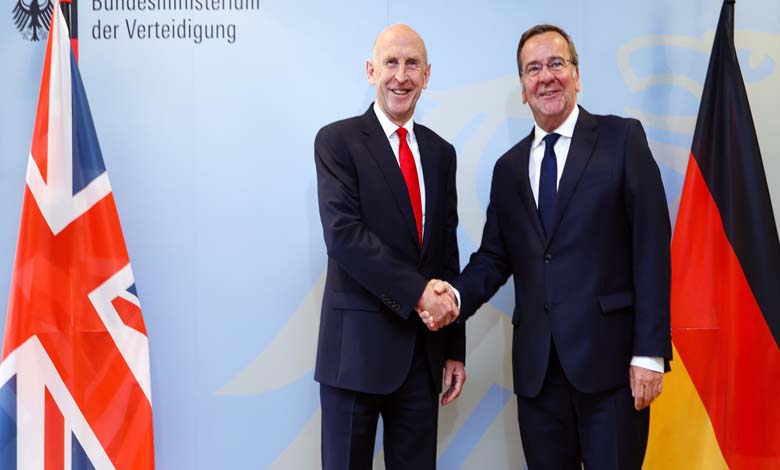An Unprecedented Pact: Britain and Germany Move Toward Joint Defence

Britain and Germany are about to mark a historic moment: on Thursday, British Prime Minister Keir Starmer welcomes German Chancellor Friedrich Merz in London to sign the largest bilateral defence treaty since 1945.
Although they hail from different political camps, the two leaders share considerable common ground. Most importantly, centre‑left Starmer and conservative Merz both aspire to spearhead European defence strategy, according to Politico.
-
Britain’s Nuclear Shield Returns to the Skies on F-35 Wings
-
Far-Right Targets Mosques in Britain… Muslims Live in Great Anxiety
Their meeting will formalise a wide‑ranging security agreement that includes:
- Joint development of a new long‑range missile system.
- Mutual assistance in the event of a threat, with any danger to one country deemed a threat to the other.
- Expanded cooperation on technology, artificial intelligence and long‑term infrastructure projects, including North Sea energy links and a direct rail corridor between Germany and the UK.
The visit gains additional momentum after US President Donald Trump announced this week his readiness to fast‑track arms deliveries to Ukraine.
-
After a Peaceful Night… Did the Far Right in Britain Fail to Incite Chaos and Hatred Against Muslims?
-
After the ban on Hizb ut-Tahrir… What is the fate of the Muslim Brotherhood in Britain?
“Brothers in Arms”
Now in his early sixties and originally a lawyer, Friedrich Merz assumed the chancellorship with relatively limited political experience. Both he and Starmer face strong domestic calls to curb immigration, and both have taken unexpected steps to boost defence spending as the United States gradually pulls back from Europe.
While Starmer seeks to match the robust support his predecessors provided to Ukraine, Merz is viewed as more hawkish than former chancellor Olaf Scholz on the same issue, drawing London and Berlin closer.
-
Special funding to combat Anti-Semitism in Britain… Details
-
Washington, Canada, and Britain Impose Sanctions on Riad Salameh
Starmer’s government has worked hard to court Berlin, pledging a defence treaty even before taking office and moving to rebuild ties with the EU. “For Germany, a reset in UK–EU relations opens the door to much closer cooperation,” notes analyst Naik Hopkinson.
The two men have met repeatedly in recent weeks, including on a train to Kyiv with French President Emmanuel Macron in May. A chancellery source says Merz was particularly keen for Starmer to join that journey.
Nikolai von Ondarza of the German Institute for International and Security Affairs observes: “Merz is especially focused on bringing the UK into European security initiatives; there is genuine ambition for deeper defence coordination.”
-
Germany Refuses to Repatriate ISIS Fighters: Syria’s Delayed Justice Dilemma
-
From Germany to Sweden: Israeli Interests “Under Scrutiny”
-
How the Far Right is Exploiting Artificial Intelligence in Germany’s Elections
-
After his expulsion, the director of the Islamic Center in Hamburg leaves Germany
-
The Terrorism Threat Remains High: Has the Number of Dangerous Islamists in Germany Decreased?












